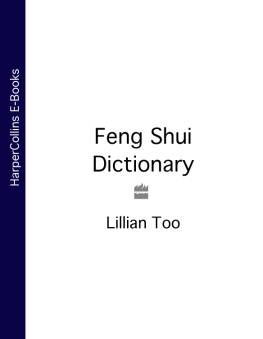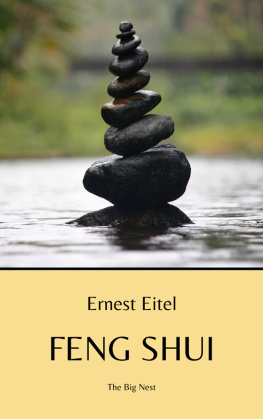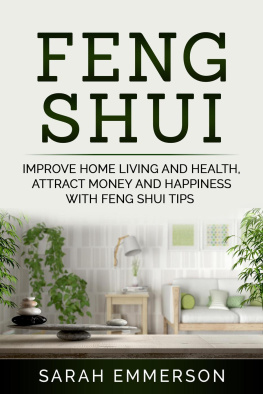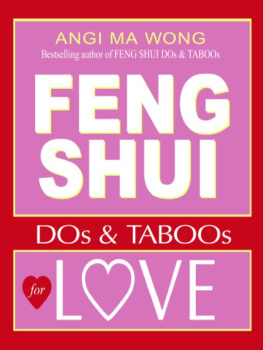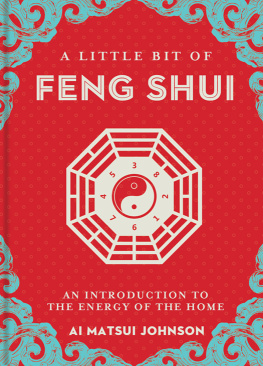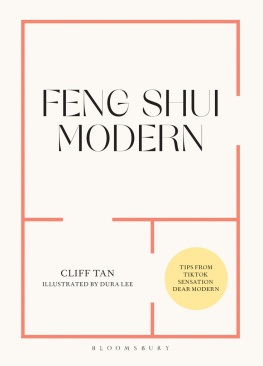
Feng Shui means wind and water. In the literal sense it refers to the topography of the earth, its mountains, valleys, and waterways, whose shapes and sizes, orientation, and levels are created by the continuous interaction of these two powerful forces of nature.
To people of Chinese origin all over the world, Feng Shui connotes a mystical practice that blends ancient wisdom with cultural superstitions. This broad body of traditional knowledge lays down guidelines for differentiating between auspicious and inauspicious land sites. It also provides instructions on how to orient homes and design room layouts to enhance the quality of life dramatically.
In the family home, well-oriented Feng Shui features work to create harmonious relationships between husband and wife and between children and parents, foster good health, and attract abundance and prosperity. They bring good fortune to the breadwinner, build good reputations, and strengthen descendants luck children who will bring honor and happiness to the family in the future.
In business premises, good Feng Shui creates opportunities for growth, elevates prestige in the community, attracts customers, raises profits, and expands turnover. Employees stay loyal and a pervasive aura of goodwill ensures smooth working relationships.
Good Feng Shui results when the winds and the waters surrounding your home and work space are harmonious and well balanced. Bad Feng Shui, on the other hand, brings illness, disasters, accidents, burglaries, and financial loss. It results in lost opportunities, fading careers, squandered wealth, and collapsed reputations. Above all, bad Feng Shui causes grave unhappiness, and it can sometimes even provoke tragic consequences for the reputation and well-being of the family unit as a whole.
Feng Shui is an exciting component of ancient Chinese wisdom a science that goes back at least 4,000 years to the days of the emperors and mythical legends. That it has so brilliantly survived the centuries bears testimony to its potency. In recent years there has been an extensive revival of interest in its practice, particularly in the West, where the study of Feng Shui began as a New Age phenomenon, but has now attracted mainstream attention.
The current popularity of Feng Shui stems from the widespread appeal of its simple logic. While its many theories and guidelines are based on the Chinese view of the universe, the fundamentals are easily understood and widely applicable. Its laws and tenets relate to simple basic concepts that advocate living harmoniously with the environment, creating balance in the living space, and blending in with the natural landscapes of the world: the contours of the land, the terrain of the earth, the rivers and waterways of the world, sunlight and moonlight, vegetation, orientations, and directions in short the winds and waters of the living earth that surrounds us.
Note
Words in bold have their own entries in the dictionary which the reader can refer to for further explanation.
Feng Shui
advocates living in harmony with the earths environment and energy lines so that there is balance with the forces of nature.
contends that the environment is crowded with powerful, but invisible energy lines.
says that some of these energy lines are auspicious, bringing great good fortune, while some are pernicious and hostile, bringing death and the destruction of happiness.
offers ways of arranging the home so that these energy lines become harmonious and bring prosperity and harmony, rather than loss and discord.
instructs us in the clever harnessing of auspicious energy lines generally referred to as Sheng Chi , the dragons cosmic breath making sure they meander gently through the home and accumulate and settle, thereby bringing good fortune.
teaches us to avoid, deflect and dissolve inauspicious energy lines also know as Shar Chi which represent the killing breath caused by secret poison arrows in the surroundings.
strenuously warns against sleeping, working, sitting, eating, and generally living in places that are hit by these pernicious hostile energy lines.
Almanac
The Chinese book of auspicious dates. The Tong Shu (also Tung Shu), or the Chinese Almanac, is one of the oldest books in the world. It originated more than 4,000 years ago and contains the largest number of divination systems ever gathered together in a single volume. The heart of the book is its calendar, which is based on the Chinese Ganzhi , or lunar system, of calculating the days and seasons of the year. The Tong Shu contains auspicious dates for undertaking a variety of daily activities, from selecting the best days for starting a new business to washing and cutting ones hair, to performing harvesting and planting rituals. The Chinese Almanac is one of the most comprehensive and traditional collections of Chinese beliefs and practices in existence. The Tong Shu contains references to Feng Shui practice that are based on flying star calculations of auspicious and inauspicious days for undertaking a variety of domestic and business activities.
Altar
Let your altar face the door directly. There are basic rules for propitious placing of altars. The Chinese generally believe it is extremely auspicious to have the altar directly facing the front door, so that the minute we walk into our homes we can see the altar. From a Feng Shui point of view, it is also recommended that the altar be placed in the northwest section of the house or living room, since this sector represents the Chien trigram , which in turn symbolizes heaven and heavenly deities. Irrespective of where you place your altar, you should always ensure that your Buddha , Kwan Yin, or any other deity is in an elevated position. The Feng Shui dimension most suitable for altars is at least 60 inches (150 cm) high. The altar must always be clean. Keeping lights on continuously, apart from representing auspicious light offerings to the deity, also attracts good Chi energy.
Amulets
A practice popular with the Chinese is the wearing of amulets that are believed to ward off bad luck caused by wandering spirits in the environment. The Chinese believe that young children are particularly vulnerable to these wandering spirits, and many parents obtain special symbols from the temple or use those specially created for them by Taoist priests. It is debatable if this practice can be considered as part of Feng Shui practice. The author herself used to wear protective amulets as a child.
Antidotes
Feng Shui antidotes, or cures, are available for almost all Feng Shui problems. Some work better than others and correctly choosing which antidote to use is one of the skills of the Feng Shui master. There are many different antidotes and these are generally summarized as follows. Use:
bright lights to dissolve bad energy.
Yang energy lights, sound, and bright colors to overcome excessive Yin energy .
windchimes, especially four-rod windchimes, to diffuse bad energy.
the Pa Kua mirror to deflect killing energy.
bells and singing bowls to purify stagnant space.
crystals to soften excessive Yang energy .
colors to correct element imbalance.
curtains and blinds to deflect bad energy.
the compass to change to more auspicious directions.
element therapy ( see ) to correct disharmony.
Antiques
Danger of harmful left-over energy. The danger with displaying antiques in the home is that you are unlikely to know the luck of the people who last owned the piece, or the quality of the Chi that still clings to the antique. It may contain very negative energy that could bring bad luck to whoever possesses it. It is particularly risky to keep antique cannons and firearms in the house, because these, especially if they come from clan homes, are likely to have tasted blood before.
Next page
